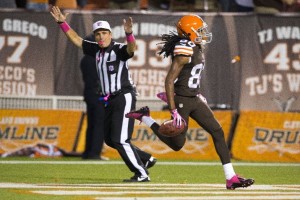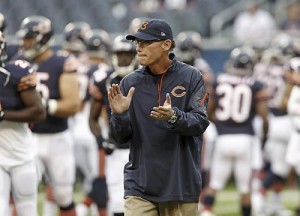The History of Fantasy Football 38
Since the explosion of fantasy football into modern sports culture, it’s hard to imagine a time when Sundays during football season weren’t accompanied by millions of people constantly checking their lineups. Young or old, man or woman, it seems like almost every football fan is involved in a fantasy league come kickoff each NFL season. Since the very first fantasy football draft in downtown Oakland, fantasy football has grown far more than the game’s inventor could ever had imagined.
The Beginning
As a branch off from a fantasy golf system, fantasy football was the invented in a bar called the Lamppost by a limited owner of the Oakland Raiders and businessman Bill Winkenbach. In his home, Winkenbach and seven other men held the inaugural draft in 1963 for their league, the Greater Oakland Professional Pigskin Prognosticators League, or GOPPPL.
With the scoring based solely on touchdowns, the GOPPPL began with each roster consisting of two quarterbacks, four halfbacks, two fullbacks, four offensive ends, two returners, two kickers and four defenders. As the very first fantasy football selection, George Blanda was chosen by Andrew Mousalimas in the now 50-year-old league.
How The Game Has Changed
From players to league sizes to scoring and more, fantasy football has drastically changed over its lifespan. For starters, the number of participants has grown from the original eight to an estimated 24 million. The greatest change of all to the game—the internet–helped the game gain incredible popularity and encouraged a number of modifications. Instead of the one league in Oakland, there are now countless leagues on countless websites, including ESPN, Yahoo, NFL and CBS to name the most prominent.
Although the prize for the winner of any fantasy league—money–has remained roughly the same, the consequence for the loser has evolved from the original football with a dunce cap on it, called the Dunce Trophy, to anything from buying the winner dinner to carrying out embarrassing chores to even getting a tattoo of the winner’s choosing.
A far cry from the GOPPPL having to get statistics and research from one magazine, fantasy football owners can now rely on websites and programs, like Scout Pro Fantasy Football Software. Sites like Scout Pro provide readers with player analysis, rankings, fantasy tools and more. Software from Scout Pro can even take stats and expert analysis and create fantasy point predictions that can be customized to fit the website that you play on.
By The Numbers
As a whole, fantasy sports are estimated to now have an economic impact of more than $2 billion a year. Of the estimated 32 million fantasy sports players, over 75 percent are from fantasy football. Some fantasy football leagues have buy-ins of up to $10,000 while others are completely free.
For fantasy football, committed owners are estimated to spend an average of nine to 12 hours per week on their respective teams. Although men dominate the fantasy sports landscape, an estimated 20 percent of participants are women.
Thanks to a few men in an Oakland bar, watching football has been forever changed. The game of fantasy football continues to grow, and its 50-year history doesn’t appear to be coming to an end any time soon.




